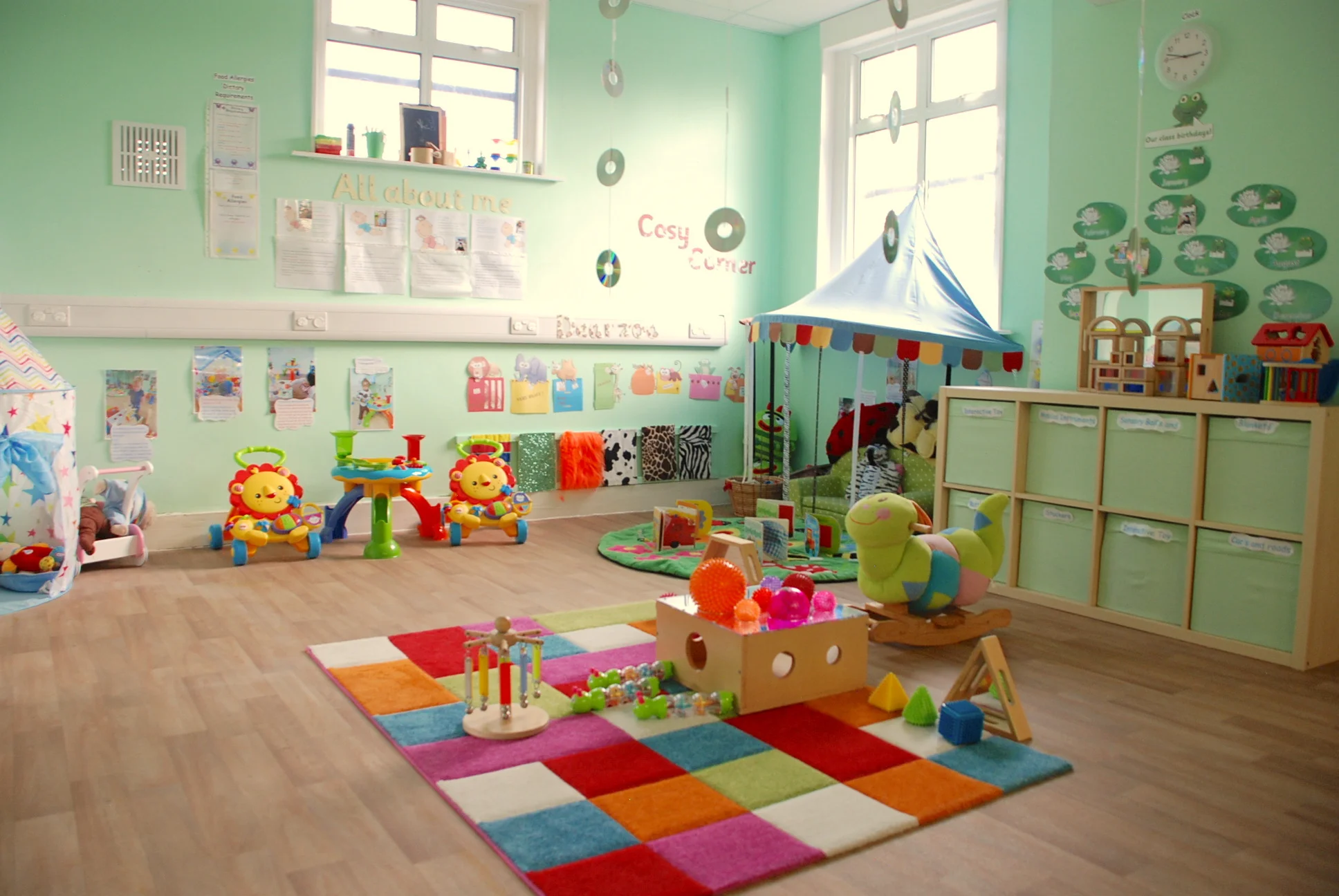Child Monitoring and Reporting to Parents
We work closely with parents from the time of their inquiry. We advise parents to take advantage of Home Visits, where the child’s allocated Key Person visits the child at home. This enables the child to become more familiar with him or her. We feel this lessens any separation anxieties a child might have, before they are admitted to the nursery; this is optional, but it reinforces the relationship between nursery and the home.
On joining the nursery, each child is allocated a key person. If parents take advantage of our Home Visit service, the Key Person will be in attendance. Whilst all staff interact with all the children at the nursery, the Key Person is a named member of staff assigned to an individual child to support their particular needs, promote their development and act as the main point of contact with that child’s parents. For this reason, each Key Person spends time with their parents to find out as much information about the children in their care as possible. staff will have Key Person Responsibility for a small number of children.
Once a child has settled into nursery life, we observe their development and learning style and frequently give verbal feedback to parents. This can be in an informal manner, when the parent drops off or picks up their child or more formally during our termly Parents’ Evenings: Every term the Key Persons and relevant parents meet to discuss their child’s progress and the next steps for their learning.
One of the main methods of tracking progress and development at Little Xplorers is the Learning Journey. If a child joins us before their third birthday, we carry out the Two Year Old Progress Check and share the results with the parents.
If, for any reason, we feel a child is not meeting their developmental milestones, we will, with the parents’ agreement, seek advice from outside agencies (speech and language etc) to ensure that the child gets any additional help, they may need.
Child Safety
At Little Xplorers we consider children’s welfare of paramount importance. To ensure that the children are safe in the nursery environment we complete a daily risk assessment to ensure the building and equipment are safe for the children to use. Any unsafe equipment is discarded instantly.
We have a secure gate/ door entry system that only allows access when admitted via an intercom system which is controlled by staff members. Through our Collection Policy we only allow authorized family or friends to collect a child. If for any other reason, a new person is asked to collect the child, we require authorization and a password from the parents before the child is released to that person.
Anyone entering the nursery (parents, staff and children) is required to sign in and sign out. This enables us to know exactly who is in the building in the case of emergency.
Any prospective parents viewing the nursery, do so on an appointment system, to ensure that the nursery is not continually showing strangers around, while the children are present.
The staff team all hold a current DBS check and if for any reason we require cover staff, then they will come from a reputable recruitment agency.
All staff hold a Paediatric First Aid Certificate and can deal with emergencies, if and when, they occur.
The nursery uses a cleaning company to clean the nursery on a daily basis, to ensure that the nursery environment is clean and hygienic for the children.
Children are encouraged to take responsibility for their own welfare, where possible. They know about the importance of washing their hands after toileting and how to prevent the spread of germs. The children know the importance of disposing of tissues once they have been used.
Child Health
It is the hope of the nursery that all children in its care continue to be in good health. However, we acknowledge that children frequently do fall unwell or suffer minor ailments.
While it is not our policy to care for sick children, who should be at home until they are well enough to return to the setting, we will agree to administer medication as part of maintaining their health and well-being or when they are recovering from an illness.
As far as possible, administering medicines will only be done where it would be detrimental to the child’s health if not given in the setting. If a child has not had a medication before, it is advised that the parent keeps the child at home for the first 48 hours to ensure that no adverse effect occurs, as well as to give time for the medication to take full effect.
The Key Person is responsible for the correct administration of medication to children in their care. This includes ensuring that parental consent forms have been completed, that medicines are stored correctly (either in the fridge or medicine safe) and that records are kept according to procedures. Children’s prescribed medicines are stored in their original containers, are clearly labeled and in date and are also inaccessible to the children.
Children taking prescribed medication MUST be well enough to attend the setting. Only medication prescribed by a doctor is administered. For some conditions, such as asthma and eczema, medication may be kept in the setting. However, for some medical conditions key staff may need additional training (Epi-pen) and this should be discussed with the nursery at the time of the application.

